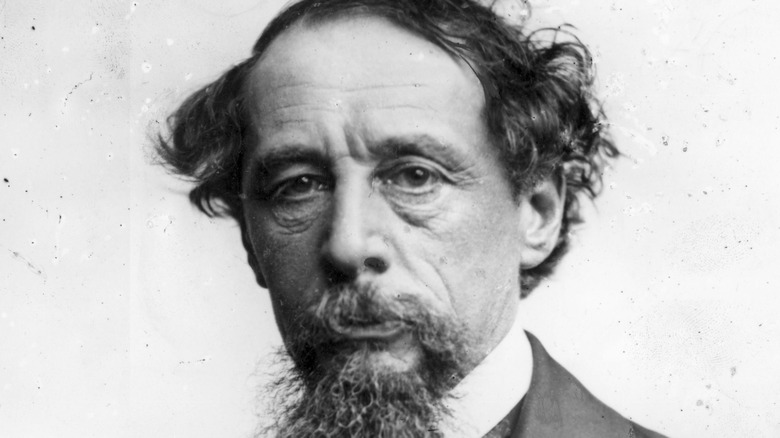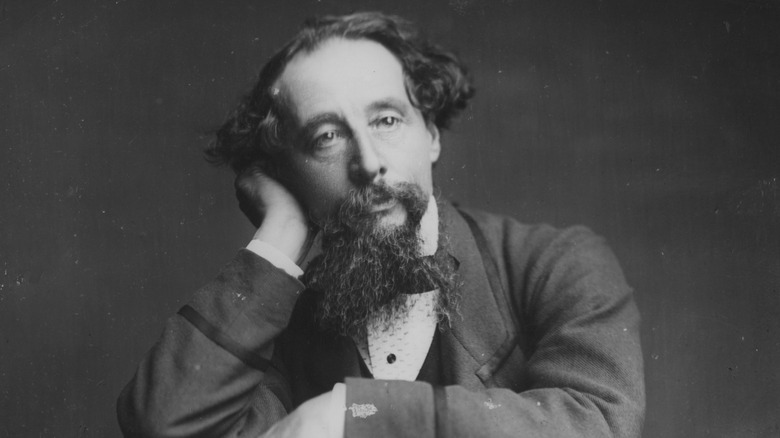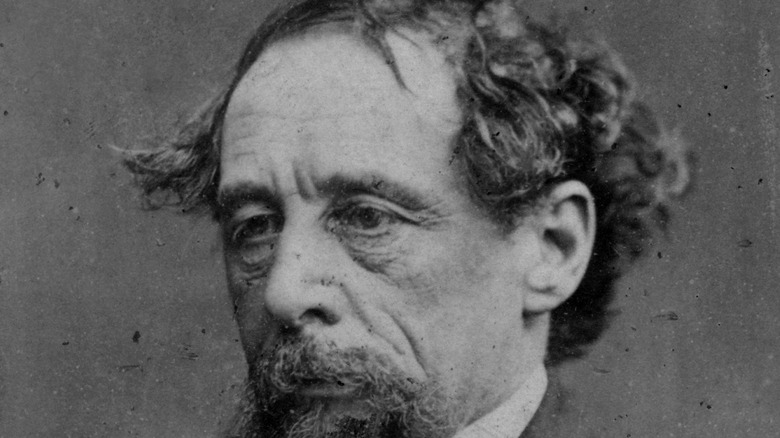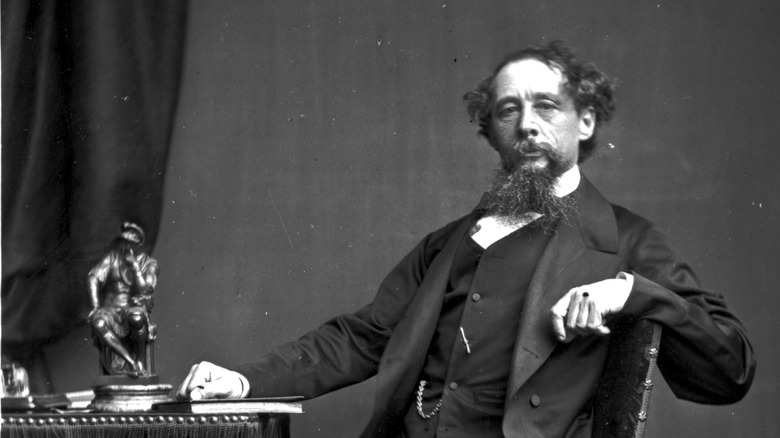How Charles Dickens Really Felt About His Kids
Charles Dickens wrote frequently and expertly about childhood. The author had four children by the time he was 30 years old, per The Daily Beast, and according to On This Day, that was the number he wished to stop at. "It begins to look serious, I am afraid," he wrote a few years later, when the number was up to eight (via The Daily Beast).
Dickens ultimately had 10 children. His eldest son went on to become a magazine editor, two other sons joined the armed forces, and two others moved to Canada and Australia, respectively. Each of Dickens' sons, except the eldest, attended school in France, as Dickens required his children to excel at the French language. His eldest daughter, Mamie, played the piano well but drank too much and never married. Another daughter, Kate, took the art world by storm — first as a painter's model, then as a painter's wife, and finally as a painter herself.
So how did Dickens, who wrote so whimsically of childhood in the Victorian era, feel about his own children? Here's what is known about the English novelist as a family man.
Charles Dickens had "great expectations" for his own children
According to The Daily Beast, Charles Dickens was a doting father when his children were young. He organized theater performances and picnics. He didn't mind too much when his children interrupted while he was writing. And he even gave each child a unique nickname. Kate, his favorite daughter, was nicknamed "Lucifer Box" because of her fiery temper.
Once Dickens' children reached adolescence, though, the author took a step back. He wanted them to follow in his own footsteps of self-sufficiency, and even once complained that he had "brought up the largest family ever known with the smallest disposition to do anything for themselves" (via The Daily Beast). He expected his children not only to choose their own path early but to achieve great things along that path. When his son, Henry, decided to go to university, Dickens balked at the expense and wrote that "if he fails to set to in earnest, I shall take him away."
Dickens' own talent and ambition had gotten him far as a writer, so he expected his children to follow his precedent.
A tragedy with Charles Dickens' baby daughter left the author grief-stricken
On April 14, 1851, tragedy struck Charles Dickens' family. The author had spent that afternoon "playing with the children and carrying little Dora about the house and garden," according to his other daughter, Mamie (via Robert Gottleib's "Great Expectations: The Sons and Daughters of Charles Dickens"). He left for London that night to attend an event, leaving his baby, Dora, "well and gay," as he wrote to his friend Angela Burdett-Coutts.
But as Dickens' ritzy London dinner was beginning, he received word that little Dora was experiencing "convulsions." He rushed home to stay by the baby's side through the night. By then, it was already too late: Dora had died. A few days later, Dickens was bringing some flowers up to "place them on the little dead baby," as Mamie recalled, when he "suddenly gave way completely."
Mamie quotes Dickens as saying upon Dora's death, "We laid the child in her grave today. And it is part of the goodness and mercy of God that if we could bring her back to life, now, with a wish, we would not do it." Dickens later named David Copperfield's child-bride after little Dora.
Charles Dickens' children got caught in the crossfire of his bitter feelings toward his wife
Charles Dickens' relationship with his wife, Catherine, was soured in part by their many children. According to The Daily Beast, when Dickens married Catherine at age 24, he married into a family more well-to-do than his own, and therefore the marriage was a social advancement. But, according to On This Day, he grew to resent her as they kept having more children beyond the four he'd wished for. He was not yet the rich and famous author Charles Dickens, so he struggled at first to support the family financially.
According to The Daily Beast, Dickens had tired of his wife by his mid-forties. She had experienced postpartum depression after giving birth to some of their children. She had gained weight. And the added weight of tending to 10 children had exhausted her. So Dickens' eyes began to wander, and he allegedly had an affair with an actor named Ellen Ternan, who was the same age as one of his young daughters.
In 1858, Dickens announced his separation from Catherine in a very public way: through newspapers. He wrote to the papers accusing his wife of being a bad mother and demanded that the children stay with him. His daughter, Kate, wrote later that "the affair brought out all that worst — all that was weakest in him. He did not care a damn what happened to any of us" (via The Daily Beast).



